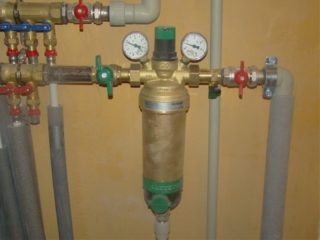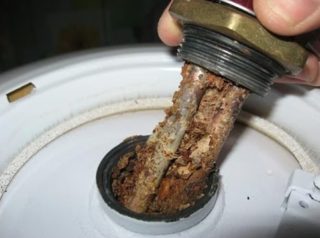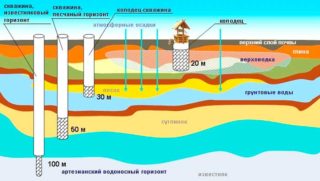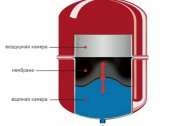A water heater designed for an apartment or a private house is able to work without interruptions for a long period. If the appliance is not cleaned from the inside, after some time the water in it will get an unpleasant odor. In this case, you need to quickly fix the problem, otherwise it will be impossible to use the boiler fully.
Types of devices and their device
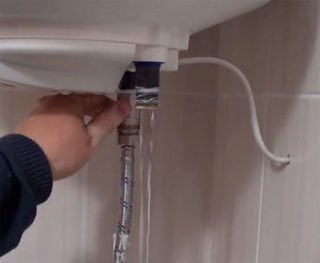
To find out why the water in a home water heater goes out, you need to pay attention to its design and variety. Devices are divided into several categories. Given the method of heating water are cumulative or flowing. Depending on the source of energy, the water heater may be gas or electric.
Cumulative
Heaters are equipped with thermos tanks designed to store hot water. They belong to the category of universal and are ideal for cottages and country houses. This is a good option for many connected devices and several users, when the pipes have a small pressure, with reduced gas pressure and frequent problems with electricity.
If water in the boiler is rotten, the cause is the tank. Such water heaters are distinguished by the material of which the tank is made: plastic, glass ceramics, titanium or stainless steel. Plastic tanks are considered the most budgetary; options with enamel coating are more durable and are produced by leading manufacturers.
Flowing
Columns heat water at the moment of opening of the crane. A heating element is located inside the flow unit, during connection with which the water temperature rises to the desired level. The smell of hydrogen sulfide from a boiler of this type is most difficult to eliminate. Flowing heaters are best placed in small apartments where bulk tanks cannot be installed.
Flowing boilers are suitable for rare use, as well as for a small number of connection points. The source of heating in the flow boiler is a gas burner or an electric heater. The advantage of this type of boiler is that heated water can be supplied to them without preparation from the sewer and for a long time, but its flow rate has limits.
Electric
Electric boilers work according to a simple principle: they are equipped with metal heating elements, the water in which is heated to the desired temperature. The main advantage of such a heater is the available energy source, since it is easier to find a source of electricity than to connect the device to a gas pipe. To install it, you do not need the help of specialists and the installation of the chimney.
If the water from such a boiler smells of hydrogen sulfide, the cause must be sought in the type of material from which it is made. The main disadvantage of the heater is overpriced compared to similar gas appliances due to high energy prices. Water heating lasts twice as long. If the boiler is completely empty or the heater is not heated enough, hot water will come with a delay.
Gas
In gas boilers, a gas type burner is installed, heating the tank or heat exchanger. Gas-fired appliances are considered the most economical for all heating systems or domestic hot water.
Gas water heaters are more expensive than electric heaters, the cost of their installation is higher, it also needs to include installation and purchase of a chimney.Despite this, the owners of such devices note a quick payback due to low fuel prices.
Causes of fetid odor
When water stinks from a boiler, the causes and methods for resolving the problem depend on the location of microscopic organisms that emit hydrogen sulfide. It can be the water heater itself or the water supply system, from where the water flows. At the same time, the liquid itself can also cause stench.
Chemical processes
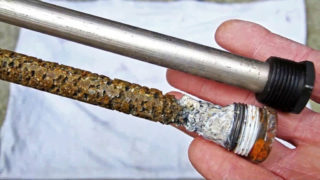
If smelling water comes from a home boiler, the problem may be chemical reactions inside the appliance. Sulphides are present in the water from the water supply, which react with a magnesium anode located inside the water heater. Due to them, water can start producing hydrogen sulfide and provoke the appearance of a rotten smell.
If the problem is the material the boiler is made of, the water will also have a smelly odor mixed with gouache, plastic or anise. Formaldehyde or phenol is formed in it - substances hazardous to health that provoke headache and insomnia. They are distinguished by low-quality plastic, from which water pipes or the boiler itself are made. This problem needs to be solved by replacing pipes or a heating device.
Water heater rarely turns on
If the heater is rarely used, the water in it costs a long time and turns into an ideal environment for the spread of bacteria. The stink is one of the manifestations of their life. Rinse and disinfect the unit as soon as possible. The hose is disconnected from the water pipe and the whiteness is poured there together with ordinary water, then the tap is closed, the hose is connected to the pipe and the valves are opened. When water is collected, the heater can be turned on.
It is recommended to flush the boiler at least once every six months, regardless of whether it is used or not. Even in a disconnected device, bacterial microflora or scale can form, and it begins to acquire a fetid odor from the inside.
Heating water to a low temperature
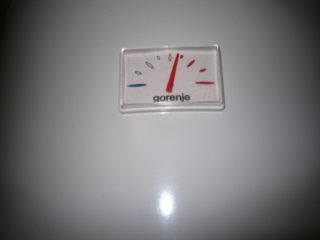
If the water in your home boiler stinks, the reason may be that it is not warm enough. Temperature up to 40 degrees - a favorable environment for bacteria that cause the smell of rotten eggs or swamps inside the device. During the operation of the boiler, it is better to give it the opportunity to heat up to full power, otherwise it may very soon start to stink.
The presence of a hydrogen sulfide component in water
The presence of hydrogen sulfide gives a special smell of rotten eggs, such a substance is more often formed in heaters that are not used constantly. Periodically, water in it must be consumed. Sometimes microbes can withstand temperatures above +60 degrees, but this does not apply to all bacteria. To eliminate the smell, the unit is completely warmed up to a maximum temperature and disinfected using special means.
Scale inside the appliance
Scale on the internal surfaces of the device, including rubber and iron, often provokes an unpleasant stench. You can remove it manually or by washing with the help of special or improvised means. To clean the body of the water heater and its parts you need:
- Disconnect the heater from the mains.
- Empty the tank completely.
- Disconnect the elements securing the flanges to the heater.
- Take out the heating element and remove the plaque in it with a knife, lower the mechanism into the solution prepared from citric acid until the scale disappears completely.
- To clean the case, the walls are washed with a soft sponge and wash off the dirt under the tap. If the coating layer is too dense, it is better to use a descaler according to the instructions.
In order for the heater to work correctly, it is necessary to change the magnesium anode in time and make a complete replacement of parts, if necessary. Many boiler models are equipped with indicator elements that start to burn when it comes time to change the part.
Elimination of external and internal causes
When the heater itself does not provoke an odor, it is worth taking measures to eliminate external causes. It is recommended to deepen a well or a well and draw water on another horizon, install special filters for the water supply system. You also need to contact the utilities or water utility, responsible for the quality of the supplied liquid. If the problem of water purity can be solved on their own, the owner of the boiler will not have to write a statement to the public utilities.
From the stench and hue of scale, you can guess what exactly the problem is. When the heater has not yet begun to emit harsh odors, you need to completely drain the water from it, fill it with fresh water, turn on the unit at full power and leave it to work for several hours. After pouring water again and changing, then use the device in standard mode.
Boiling at temperatures above 40 degrees can also solve the problem. The boiler is cleaned in this mode if the bad smell has not disappeared. In this case, the water heater is cleaned of mucus, dirt particles, scale and other harmful substances that can provoke damage. Such an assembly is dismantled by first pouring water and disconnecting parts, including hoses, wires, heating elements, as well as the lower flange. It must be treated with a solution of citric acid, washed with a sponge and rinsed with warm water.
Maintenance work
So that the water heater can serve as long as possible, it is necessary to devote time to preventative cleaning and quick replacement of parts. The owner of the device needs to pour water if the heater will not be used for a long time, periodically turn it on at maximum power and monitor the condition of the magnesium anode and TEN.
Modern units are equipped with sensors that indicate what needs to be changed in a particular case. Timely maintenance helps extend the life of the heater and prevent odors.
